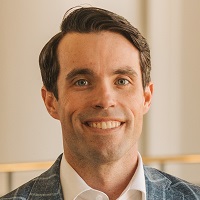Wealth Transfer Is About More Than Just Money
Families have many forms of capital beyond their money. Here are five of them, plus ways to easily ‘transfer’ them to younger generations.


Profit and prosper with the best of Kiplinger's advice on investing, taxes, retirement, personal finance and much more. Delivered daily. Enter your email in the box and click Sign Me Up.
You are now subscribed
Your newsletter sign-up was successful
Want to add more newsletters?

Delivered daily
Kiplinger Today
Profit and prosper with the best of Kiplinger's advice on investing, taxes, retirement, personal finance and much more delivered daily. Smart money moves start here.

Sent five days a week
Kiplinger A Step Ahead
Get practical help to make better financial decisions in your everyday life, from spending to savings on top deals.

Delivered daily
Kiplinger Closing Bell
Get today's biggest financial and investing headlines delivered to your inbox every day the U.S. stock market is open.

Sent twice a week
Kiplinger Adviser Intel
Financial pros across the country share best practices and fresh tactics to preserve and grow your wealth.

Delivered weekly
Kiplinger Tax Tips
Trim your federal and state tax bills with practical tax-planning and tax-cutting strategies.

Sent twice a week
Kiplinger Retirement Tips
Your twice-a-week guide to planning and enjoying a financially secure and richly rewarding retirement

Sent bimonthly.
Kiplinger Adviser Angle
Insights for advisers, wealth managers and other financial professionals.

Sent twice a week
Kiplinger Investing Weekly
Your twice-a-week roundup of promising stocks, funds, companies and industries you should consider, ones you should avoid, and why.

Sent weekly for six weeks
Kiplinger Invest for Retirement
Your step-by-step six-part series on how to invest for retirement, from devising a successful strategy to exactly which investments to choose.
Nearly every article on the Great Wealth Transfer discusses how the Silent Generation and Baby Boomers are poised to transfer about $84.4 trillion in assets through 2045, with $72.6 trillion going directly to heirs, according to Cerulli Associates.
But how the ultra-wealthy perceive wealth could have implications for others. Many goods and services, initially exclusive luxuries for the ultra-wealthy — such as electricity, indoor plumbing and refrigeration — are now taken for granted by the broader population. How the ultra-wealthy think about wealth today will shape how the broader world thinks about it tomorrow.
In the book Complete Family Wealth, co-authors James Hughes Jr., Keith Whitaker and Susan Massenzio recount a wise grandmother's words: "Our family has always been rich, and sometimes we've had money." This statement encapsulates a perspective long held in ultra-wealthy circles, now reaching a wider audience. True wealth for an individual, household or family lies in their well-being — a flourishing family unit.
From just $107.88 $24.99 for Kiplinger Personal Finance
Become a smarter, better informed investor. Subscribe from just $107.88 $24.99, plus get up to 4 Special Issues

Sign up for Kiplinger’s Free Newsletters
Profit and prosper with the best of expert advice on investing, taxes, retirement, personal finance and more - straight to your e-mail.
Profit and prosper with the best of expert advice - straight to your e-mail.
You might wonder how to apply this concept in your own family. Complete Family Wealth provides a framework, The Five Forms of Family Capital, which we'll modify slightly for a more actionable approach to wealth transfer beyond just money. Additional insights can be gleaned from organizations like the UHNW Institute and ideas such as Wealth 3.0.
Here's a brief explanation of each form of capital, along with economical and generous ways to implement them:
1. Cultural capital (spiritual capital): Reflects the family's shared vision (purpose, values and roles).
Economical: Order pizza, grab some scrap paper and dedicate a Friday night to drafting your personal, household or family vision. TFM defines vision as purpose plus values plus roles. Don’t worry about getting it perfect, just get started.
Generous: Arrange a family retreat with an external facilitator, combining vacation elements with sessions to refine individual, household and family visions.
2. Human capital: Promotes the physical and mental health of family members.
Economical: Take a family walk or hike without phones (except one for emergencies). This is a simple way to enjoy one another’s company and the benefits of exercise.
Generous: Enroll in fitness classes together (yoga, spin, boot camps, kickboxing, etc.). If a family elder can sponsor, even better. This is a fun way to emphasize the value of physical health.
3. Social capital: Strengthens a family’s relationships and their ability to make decisions together.
Economical: Start a family book club or movie night, alternating choices among members. It's an opportunity to deepen discussions beyond the usual topics. Books we suggest starting with: Generations by Jean Twenge or The Good Life by Robert Waldinger and Marc Schulz. Movies could be Defending Your Life or Dead Poets Society.
Generous: Virtual family game night with a game-show host. This isn’t as expensive as you’d think, and you can’t beat the convenience of a company like Playful Humans. We’ve found 8 p.m. on a weekday night, planned four to six weeks in advance, as a universally doable time for all life stages.
4. Intellectual capital: Shares the collective knowledge, experiences and wisdom of the family.
Economical: Have someone in your family teach a class about what they know to the rest of the family. This could be Uncle John teaching everyone to hit a golf ball, Aunt Mary teaching about making the world’s best cupcakes or Grandpa Pete teaching everyone to drive a stick shift.
Generous: Create a private family podcast. It has never been easier to record and edit audio and never been cheaper to preserve the audio in a way that it can be used later. All you need is some basic equipment/software, a passionate member of the family to do the interviewing and some willing subjects to be interviewed. Some of the questions we love are around wisdom: What has your life taught you about love, success, happiness, leadership, etc.?
5. Financial capital: Refers to cash, securities, real estate and other traditional assets.
This is a well-trodden path with plenty of complexity. Consult your financial team for tailored advice.
These initiatives all demand time investments. Consider dedicating 30 minutes to an hour a month preparing for your family’s “wealth transfer.” Reflect on the optimal allocation of your time across these capitals.
While most people focus 95% of their effort on financial capital, this alternative framework offers a broader perspective on legacy. What you choose to do with it is entirely in your hands.
Related Content
- Think of Retirement as the Goal, Not the Vision
- The Five Stages of Retirement (and How to Skip Three of Them)
- Five Things I Wish I’d Known Before I Retired
- Retirement Is a Journey: Do You Have the Map?
- To Create a Happy Retirement, Start With the Three Ps
Profit and prosper with the best of Kiplinger's advice on investing, taxes, retirement, personal finance and much more. Delivered daily. Enter your email in the box and click Sign Me Up.

Alex Kirby, Founder and CEO of Total Family Management, is a forward-thinking leader based in the Washington, D.C.-Baltimore area. He is a firm believer in the pivotal role that family plays in our lives. Under his guidance, TFM offers private virtual family coaching services and cutting-edge proprietary software designed to enhance family dynamics and social fitness. TFM is utilized by premier family offices, wealth firms and private families across the U.S. Throughout his career, Alex has been unwaveringly committed to people development, highlighting his dedication to empowering both individuals and families.
-
 Betting on Super Bowl 2026? New IRS Tax Changes Could Cost You
Betting on Super Bowl 2026? New IRS Tax Changes Could Cost YouTaxable Income When Super Bowl LX hype fades, some fans may be surprised to learn that sports betting tax rules have shifted.
-
 How Much It Costs to Host a Super Bowl Party in 2026
How Much It Costs to Host a Super Bowl Party in 2026Hosting a Super Bowl party in 2026 could cost you. Here's a breakdown of food, drink and entertainment costs — plus ways to save.
-
 3 Reasons to Use a 5-Year CD As You Approach Retirement
3 Reasons to Use a 5-Year CD As You Approach RetirementA five-year CD can help you reach other milestones as you approach retirement.
-
 The 4 Estate Planning Documents Every High-Net-Worth Family Needs (Not Just a Will)
The 4 Estate Planning Documents Every High-Net-Worth Family Needs (Not Just a Will)The key to successful estate planning for HNW families isn't just drafting these four documents, but ensuring they're current and immediately accessible.
-
 Love and Legacy: What Couples Rarely Talk About (But Should)
Love and Legacy: What Couples Rarely Talk About (But Should)Couples who talk openly about finances, including estate planning, are more likely to head into retirement joyfully. How can you get the conversation going?
-
 How to Get the Fair Value for Your Shares When You Are in the Minority Vote on a Sale of Substantially All Corporate Assets
How to Get the Fair Value for Your Shares When You Are in the Minority Vote on a Sale of Substantially All Corporate AssetsWhen a sale of substantially all corporate assets is approved by majority vote, shareholders on the losing side of the vote should understand their rights.
-
 How to Add a Pet Trust to Your Estate Plan: Don't Leave Your Best Friend to Chance
How to Add a Pet Trust to Your Estate Plan: Don't Leave Your Best Friend to ChanceAdding a pet trust to your estate plan can ensure your pets are properly looked after when you're no longer able to care for them. This is how to go about it.
-
 Want to Avoid Leaving Chaos in Your Wake? Don't Leave Behind an Outdated Estate Plan
Want to Avoid Leaving Chaos in Your Wake? Don't Leave Behind an Outdated Estate PlanAn outdated or incomplete estate plan could cause confusion for those handling your affairs at a difficult time. This guide highlights what to update and when.
-
 I'm a Financial Adviser: This Is Why I Became an Advocate for Fee-Only Financial Advice
I'm a Financial Adviser: This Is Why I Became an Advocate for Fee-Only Financial AdviceCan financial advisers who earn commissions on product sales give clients the best advice? For one professional, changing track was the clear choice.
-
 I Met With 100-Plus Advisers to Develop This Road Map for Adopting AI
I Met With 100-Plus Advisers to Develop This Road Map for Adopting AIFor financial advisers eager to embrace AI but unsure where to start, this road map will help you integrate the right tools and safeguards into your work.
-
 The Referral Revolution: How to Grow Your Business With Trust
The Referral Revolution: How to Grow Your Business With TrustYou can attract ideal clients by focusing on value and leveraging your current relationships to create a referral-based practice.